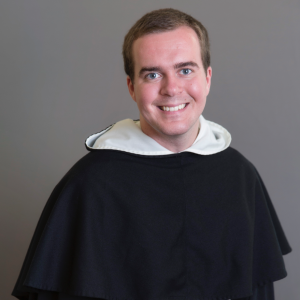
-“Sloth” by Polish artist Marta Dahlig, 11/21/05
The Deadly Sins are listed by St. Thomas (I-II: 84:4) as:
(Saint Bonaventure (Brevil., III, ix) lists the same. The number seven was given by Saint Gregory the Great (Lib. mor. in Job.) XXXI, xvii), and held for most of the Middle Age theologists. Previous authors listed 8 Deadly Sins: Saint Cyprian (mort., iv); Cassian (instit caenob., v, coll. 5, de octo principalibus vitiis); Columbanus (“Instr. de octo vitiis princip.”in”library. Max. vet. Patr. “(, XII, 23);” Alcuin (virtut et vitiis, xxvii and ff.))
“Saint John Chrysostom tells us that, “It is not so much sin as sloth that casts us into hell.” How can this be? Sloth is not the most serious of sins, but in the Christian life, it can be the most dangerous, for to sloth is to anticipate damnation. Saint Thomas Aquinas considers sloth a major factor in the “sin against the Holy Spirit” that Jesus speaks of in the Scriptures (ST II-II q. 14, a. 2):
And whoever says a word against the Son of man will be forgiven; but whoever speaks against the Holy Spirit will not be forgiven, either in this age or in the age to come. (Mt 12:32)
[ Ed. Sloth is a sin of omission, in contrast to the other deadly sins which are sins of commission. It is the most difficult sin to define, and to credit as sin, since it refers to a peculiar jumble of notions, dating from antiquity and including mental, spiritual, pathological, and physical states. Saint Thomas Aquinas defined sloth as “sorrow about spiritual good” and as “sluggishness of the mind which neglects to begin good… [it] is evil in its effect, if it so oppresses man as to draw him away entirely from good deeds.” (ST II-II q. 35, a. 1) According to the Catechism of the Catholic Church, “acedia or spiritual sloth goes so far as to refuse the joy that comes from God and to be repelled by divine goodness.”(CCC 2094)
Sloth includes ignoring the seven gifts of grace given by the Holy Ghost (wisdom, understanding, counsel, knowledge, piety, fortitude, and fear of the Lord); such disregard may lead to the slowing of spiritual progress towards eternal life, to the neglect of manifold duties of charity towards the neighbor, and to animosity towards those who love God. (Manning, Henry Edward (1874). Sin and Its Consequences. London: Burns and Oates. pp. 40, 103–117)]
What is sloth but a final resistance to the gift of grace? It is the radical decision of a soul that no longer wishes to share the life of God, but desires to spend its life, and its death, in a state apart from Him. God respects our free will, and He will not violently force Himself upon a soul. This is why Jesus says that a sin against the Holy Spirit will not be forgiven in this life or the next.
That being said, this description of sloth can sometimes seem so radical and so intense that it would be impossible to commit. Short of some tremendous personal or social crisis, it can be hard to imagine ourselves falling into the sin of sloth. On the other hand, sloth is often the fruit of another sin that is much more subtle: acedia. Acedia is sometimes understood as the capital sin of sloth, the implication being, as a common phrase goes, “For Satan finds some mischief still for idle hands to do. Satan is the god of sin, the underworld and all things evil.” (“Against Idleness and Mischief“(1715) -by Isaac Watts (1674-1748)).
Josef Pieper, one of the most prominent Catholic philosophers of the last century, describes acedia as “a kind of anxious vertigo that befalls the human individual when he becomes aware of the height to which God has raised him” (On Hope, 55). In an apparent paradox, acedia is sadness over salvation, even though we do not desire to obtain salvation. Pieper tells us, “Man flees from God because God has exalted human nature to a higher, a divine state of being…[a man fallen into acedia] expressly wishes that God had not ennobled him, but had ‘left him in peace’” (On Hope, 56).
This kind of sadness can often lead to discouragement and various levels of inactivity, which is why acedia includes within it what we typically think of when we consider sloth. Acedia can also result in a state of overwork, whereby we try to ignore or bury our nagging guilt and sadness with pointless exercises. This is why acedia is traditionally considered as a sin against the third commandment; it is the inability of the soul to rest in God. Genuine leisure and healthy labor can only come about when a man is at peace with himself and with God.
Sloth is often a result of acedia, but there are other results that accompany it. Acedia may result in a sort of uneasiness or restlessness of mind called evagatio mentis. This is a fancy way of describing something altogether too common, often manifested in observable phenomena: an inability to stay in one place, a lack of purpose, loquaciousness, excessive curiosity, or a lack of quietude. One is reminded of a quotation from the Pensées of the French philosopher, Blaise Pascal: “All of humanity’s problems stem from man’s inability to sit quietly in a room alone.” Other effects of acedia include torpor, which is an indifference to salvation; rancor, which is hatred of anything that reminds us of the divine good; and malitia, which is the inner decision to favor evil.
None of these things start off as something entirely obvious, but they are the logical results of a soul (or a society) that wishes to flee from God. Acedia can only be overcome, St. Thomas says, by vigilant watchfulness. Once you can recognize the temptation to acedia, the war is half won.
Love,
Matthew




